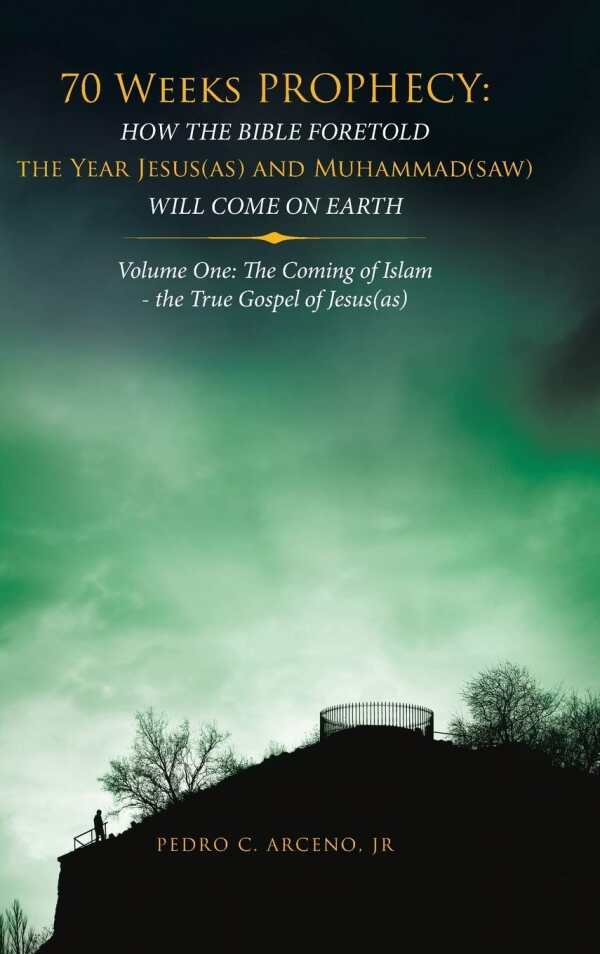70 Weeks Prophecy
How the Bible Foretold the Year Jesus(as) and Muhammad(saw) Will Come on Earth
70 Weeks Prophecy is a wide-ranging exploration of the links between Judaism, Christianity, and Islam.
Pedro C. Arceno Jr.’s intense 70 Weeks Prophecy argues that Islam is the one true faith.
This sprawling book begins its argument deep in the Christian past, exploring alternative gospels like the Gospel of Barnabas and extrabiblical sources like Josephus to show how complicated the biblical record can be. It argues that there are errors and omissions in the biblical record and in Christian interpretations of that material, most notably in scholars’ understandings of Jesus and his relationship to the Book of Daniel. In the book’s view, Jesus was a prophet who foretold the coming of Muhammad and of Islam.
Leaning on a complex and esoteric numerological reading of the Bible, the book uses scriptural data to calculate Muhammad’s appearance in the historical record. It aims to convince the audience of the truth of this perspective, much of which hinges on an alternative interpretation of the Book of Daniel. In vague terms, it suggests that Daniel foretold two messiahs, dismissing readings that suggest that these messiahs were to be a person and a place. Herein, the messiahs are Jesus and Muhammad, and the book is quick to dismiss contrary readings of Daniel at the cost of its persuasiveness.
The book’s alternative understanding of Jesus’s preaching about the kingdom of God asserts that Jesus was speaking about God’s “approved” religion, Islam. It explores the biblical symbolism of the Son of Man and kingdom theology to bolster this idea, though from a Muslim perspective, but its notions don’t add enough to traditional Muslim understandings of Jesus to be persuasive on their own.
Its lengthy material broken into only four chapters, the text uses subheadings instead of traditional chapter breaks to allow for extended considerations of its supporting biblical and Qur’anic materials. That it is so ponderous dilutes its power, though; its subheadings do little to make the dense, often rambling, material more accessible. The table of contents makes navigating the material more possible, though frequent digressions mean that material repeats.
Copious footnotes and a wealth of cited material give the work an academic tone. The range of supporting material is vast, including theological studies of the New Testament, studies of Hebrew terms found in Daniel, and lengthy quotations from the Qur’an. The book preferences Muslim interpretations and spellings, and all material is incorporated ably, with all texts presented in distinct and understandable terms. Missing words and agreement issues make the book harder to read, though.
While it aims to examine all supporting materials with rigor, the book’s underlying theology is never in doubt. It functions as a statement of faith in which the claims of Judaism and Christianity are squelched. The way the book discusses needing to reform the Jewish people is problematic, and the ultimate tone of the book becomes less scholarly than evangelical.
70 Weeks Prophecy is a wide-ranging exploration of the links between Judaism, Christianity, and Islam.
Reviewed by
Jeremiah Rood
Disclosure: This article is not an endorsement, but a review. The publisher of this book provided free copies of the book and paid a small fee to have their book reviewed by a professional reviewer. Foreword Reviews and Clarion Reviews make no guarantee that the publisher will receive a positive review. Foreword Magazine, Inc. is disclosing this in accordance with the Federal Trade Commission’s 16 CFR, Part 255.

